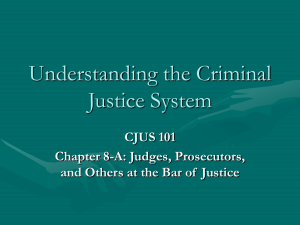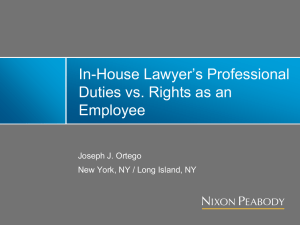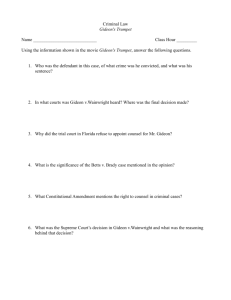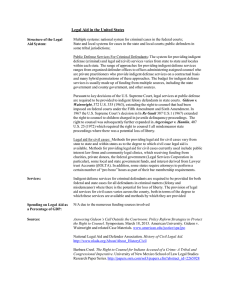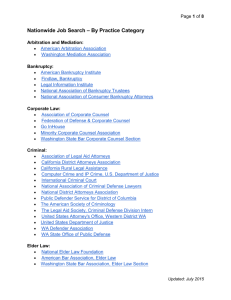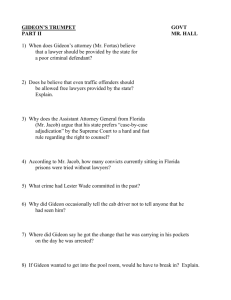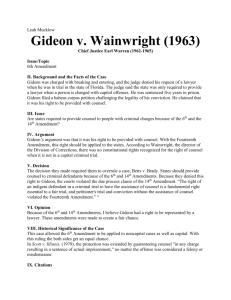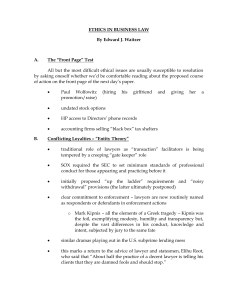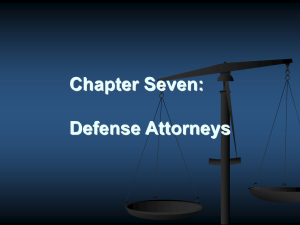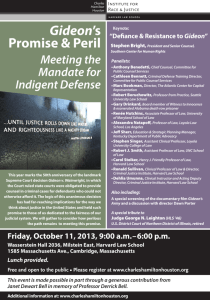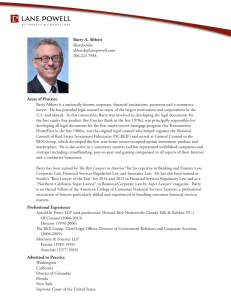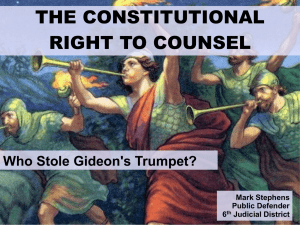Relections on Gideon v. Wainwright - National Legal Aid & Defender
advertisement
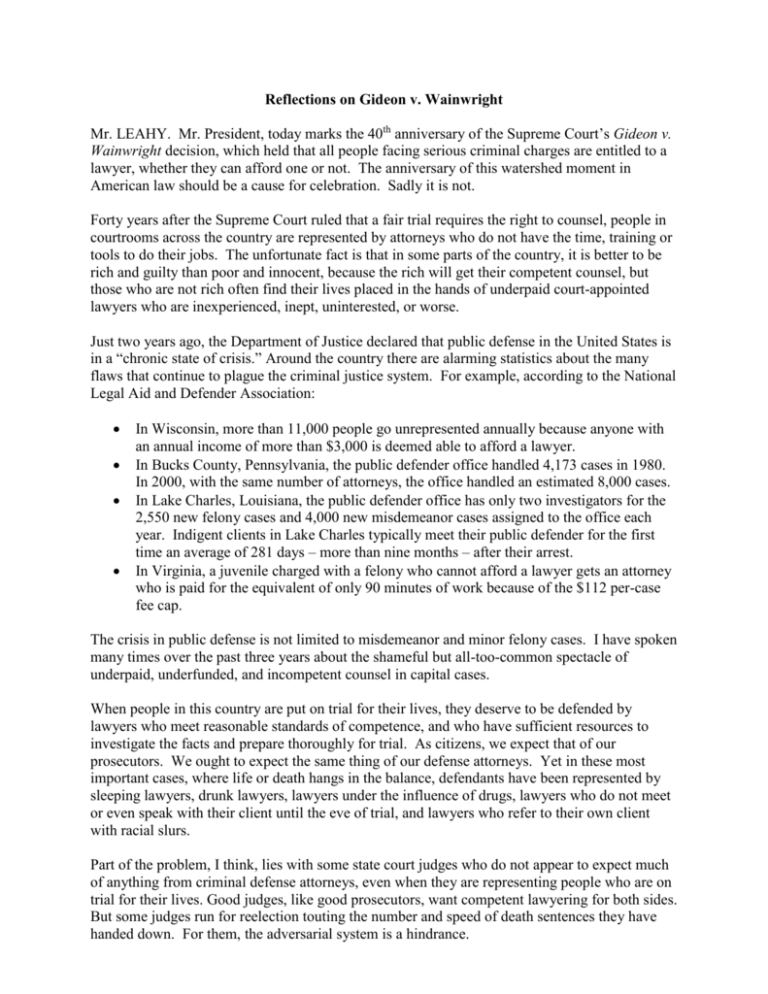
Reflections on Gideon v. Wainwright Mr. LEAHY. Mr. President, today marks the 40th anniversary of the Supreme Court’s Gideon v. Wainwright decision, which held that all people facing serious criminal charges are entitled to a lawyer, whether they can afford one or not. The anniversary of this watershed moment in American law should be a cause for celebration. Sadly it is not. Forty years after the Supreme Court ruled that a fair trial requires the right to counsel, people in courtrooms across the country are represented by attorneys who do not have the time, training or tools to do their jobs. The unfortunate fact is that in some parts of the country, it is better to be rich and guilty than poor and innocent, because the rich will get their competent counsel, but those who are not rich often find their lives placed in the hands of underpaid court-appointed lawyers who are inexperienced, inept, uninterested, or worse. Just two years ago, the Department of Justice declared that public defense in the United States is in a “chronic state of crisis.” Around the country there are alarming statistics about the many flaws that continue to plague the criminal justice system. For example, according to the National Legal Aid and Defender Association: In Wisconsin, more than 11,000 people go unrepresented annually because anyone with an annual income of more than $3,000 is deemed able to afford a lawyer. In Bucks County, Pennsylvania, the public defender office handled 4,173 cases in 1980. In 2000, with the same number of attorneys, the office handled an estimated 8,000 cases. In Lake Charles, Louisiana, the public defender office has only two investigators for the 2,550 new felony cases and 4,000 new misdemeanor cases assigned to the office each year. Indigent clients in Lake Charles typically meet their public defender for the first time an average of 281 days – more than nine months – after their arrest. In Virginia, a juvenile charged with a felony who cannot afford a lawyer gets an attorney who is paid for the equivalent of only 90 minutes of work because of the $112 per-case fee cap. The crisis in public defense is not limited to misdemeanor and minor felony cases. I have spoken many times over the past three years about the shameful but all-too-common spectacle of underpaid, underfunded, and incompetent counsel in capital cases. When people in this country are put on trial for their lives, they deserve to be defended by lawyers who meet reasonable standards of competence, and who have sufficient resources to investigate the facts and prepare thoroughly for trial. As citizens, we expect that of our prosecutors. We ought to expect the same thing of our defense attorneys. Yet in these most important cases, where life or death hangs in the balance, defendants have been represented by sleeping lawyers, drunk lawyers, lawyers under the influence of drugs, lawyers who do not meet or even speak with their client until the eve of trial, and lawyers who refer to their own client with racial slurs. Part of the problem, I think, lies with some state court judges who do not appear to expect much of anything from criminal defense attorneys, even when they are representing people who are on trial for their lives. Good judges, like good prosecutors, want competent lawyering for both sides. But some judges run for reelection touting the number and speed of death sentences they have handed down. For them, the adversarial system is a hindrance. The problem of low standards is not confined to elected state judges. Last year, the U.S. Supreme Court held that it was okay for the defendant in a capital murder trial to be represented by the same lawyer who represented the murder victim. Two years ago, a federal appeals court struggled with the question whether a defense lawyer who slept through most of his client’s capital murder trial provided effective assistance of counsel. Fortunately, a majority of the court eventually came to the sensible conclusion that “unconscious counsel equates to no counsel at all.” If Gideon is to have any meaning in the 21st Century, the courts must start demanding more of defense lawyers than that they simply show up for the trial and remain awake. At the same time, the people’s representatives in the states legislatures and here in Congress must also do their part. For three years, I have been working with colleagues on both sides of the aisle to pass the Innocence Protection Act, a basic, common-sense package of criminal justice reforms. This bill would help make good on Gideon’s promise of equal justice in the small but consequential set of cases in which the accused faces a possible death sentence. More specifically, the bill would help states create the systems and pay the price for qualified attorneys in capital cases. Last year, the Innocence Protection Act won the support of a bipartisan majority of the Senate Judiciary Committee, and more than half the entire House of Representatives. This year, my cosponsors and I are committed to getting the bill signed into law. The anniversary of Gideon is a time to reflect on how far we have come, and how far we have to go, in ensuring equal justice for all Americans. The United States must do better to protect the rights of its citizens and provide qualified defense counsel to the poor and disadvantaged. It should not take another 40 years to deliver on this basic constitutional guarantee. #####
